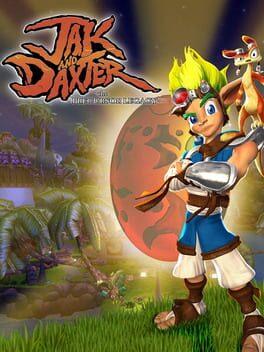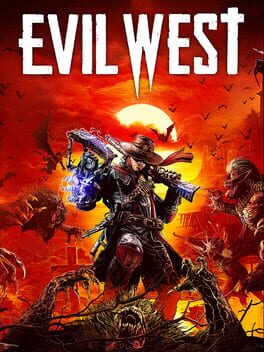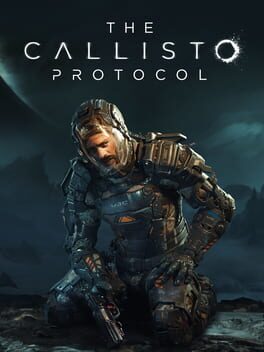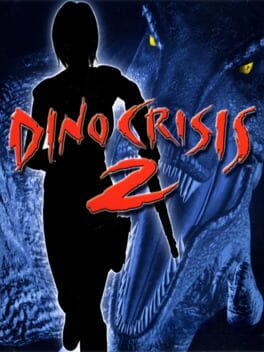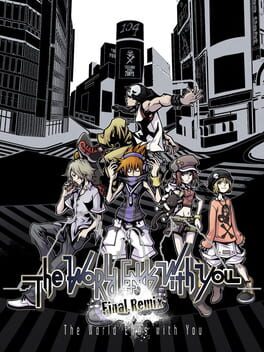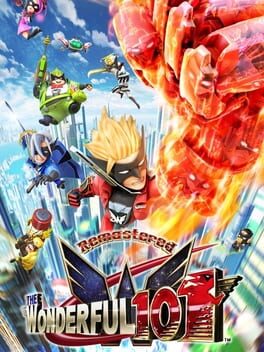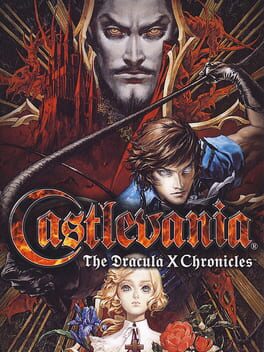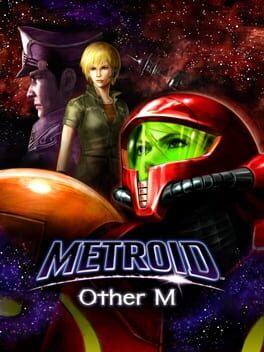taterboyega
Naughty Dog's first foray into the collect-a-thon 3D platformer model, popularized by Super Mario 64, and then perfected by Bubsy 3D, proved to be a worthwhile venture because the end product is an iconic action platformer with an impressive technical edge that's only sometimes betrayed by its abhorrent camera and occasional input lag making some double jumps and dive attacks miss (or maybe I just suck, but not nearly as bad as the game's camera)
2023
Alan Wake II is a cool game. From the opening act, you know you're in for an interesting narrative experience. The presentation is unique and aggressively stylistic. The atmosphere is thick, in both cutscenes and gameplay. The general vibe is unparalleled, at least compared to other games that came out in 2023.
Alan Wake II is a video game though. And as a video game, it often misses the mark. Too often. For starters, the game wants to be Silent Hill so bad bro. It often comes close, but more often, it's kneecapped by a lot of design decisions that run counter to what made those games fun to play.
The differences are manifold. But it boils down to two major contributors in my opinion: exploration, and campaign length. In Silent Hill and similar horror games from the PS2 era, exploration was limited to urban areas, where the level geometry wasn't often more complex than a few slopes and some waist-high walls here or there. In contrast, much of Alan Wake II is set in heavily forested areas. How is this a bad thing, you ask? Invisible walls and uneven terrain. Everywhere. You see that bush in front of you? It's an unscalable wall now. You see that three-foot drop? Well, good luck jumping down from it, because the developers neglected to put an interact prompt in front of it. These scenarios compound and multiply throughout the entire game to make traversal and general exploration a massive chore that takes me out of the experience entirely. Earlier horror games didn't suffer from this because the levels were primarily designed with ease of exploration in mind, rather than photorealism. The first Alan Wake didn't suffer from this either because the developers were dedicated to abolishing any and all invisible walls in that game and also allowed the character to jump. Ironically, that felt magnitudes more immersive than the sequel's approach.
The second is length. It's self-explanatory, really. The average Silent Hill or classic Resident Evil didn't run longer than 6-8 hours. I think there's a good reason for that too, because the puzzle-box nature of level progression in those games is not suited to longer run times. Alan Wake II adopts the same progression, find the right key to the right lock in a different part of the map to progress, but it's spread out over a 20+ hour campaign, and it starts to drag because of it. To be fair, you do more things in this game than you do in older survival horror games - like talking to NPC's, putting together Saga's case board and exploring her criminal profiles, and changing plot and world details with Alan, but the novelty of these new mechanics also wear out over the game's bloated run-time.
Also true to classic survival horror trappings, the combat in the game is dog. Except, unlike in those games, you can tell Alan Wake II's combat tries to be something more, but ends up falling short. Enemies are far too spongy and much too prone to leaving your line of sight. Melee attacks often don't do anything meaningful and the flashlight mechanic is completely overhauled to be something that's much worse than what was there in the first Alan Wake. Now, flashlight boosting is all but mandatory to use on enemies, and often unreliable. Gone are the days when strategic positioning was encouraged by giving a passive flashlight beam chip damage capability. Gone are the days when levels made creative use of light to destroy enemies. Gone are the days when you could load one bullet into your revolver at a time for a nice risk-reward interplay between player and enemy. This game at times seems dedicated to abandon all the creative ideas the first game had in favor of more standardized, often underwhelming, third-person shooter tropes.
At least the story and presentation are great though. And all negatives aside, Alan Wake II is still a cool game. (It's not a loop, it's a spiral. OOOOOOOOOOOOOHHHHHHHHHHH.)
Alan Wake II is a video game though. And as a video game, it often misses the mark. Too often. For starters, the game wants to be Silent Hill so bad bro. It often comes close, but more often, it's kneecapped by a lot of design decisions that run counter to what made those games fun to play.
The differences are manifold. But it boils down to two major contributors in my opinion: exploration, and campaign length. In Silent Hill and similar horror games from the PS2 era, exploration was limited to urban areas, where the level geometry wasn't often more complex than a few slopes and some waist-high walls here or there. In contrast, much of Alan Wake II is set in heavily forested areas. How is this a bad thing, you ask? Invisible walls and uneven terrain. Everywhere. You see that bush in front of you? It's an unscalable wall now. You see that three-foot drop? Well, good luck jumping down from it, because the developers neglected to put an interact prompt in front of it. These scenarios compound and multiply throughout the entire game to make traversal and general exploration a massive chore that takes me out of the experience entirely. Earlier horror games didn't suffer from this because the levels were primarily designed with ease of exploration in mind, rather than photorealism. The first Alan Wake didn't suffer from this either because the developers were dedicated to abolishing any and all invisible walls in that game and also allowed the character to jump. Ironically, that felt magnitudes more immersive than the sequel's approach.
The second is length. It's self-explanatory, really. The average Silent Hill or classic Resident Evil didn't run longer than 6-8 hours. I think there's a good reason for that too, because the puzzle-box nature of level progression in those games is not suited to longer run times. Alan Wake II adopts the same progression, find the right key to the right lock in a different part of the map to progress, but it's spread out over a 20+ hour campaign, and it starts to drag because of it. To be fair, you do more things in this game than you do in older survival horror games - like talking to NPC's, putting together Saga's case board and exploring her criminal profiles, and changing plot and world details with Alan, but the novelty of these new mechanics also wear out over the game's bloated run-time.
Also true to classic survival horror trappings, the combat in the game is dog. Except, unlike in those games, you can tell Alan Wake II's combat tries to be something more, but ends up falling short. Enemies are far too spongy and much too prone to leaving your line of sight. Melee attacks often don't do anything meaningful and the flashlight mechanic is completely overhauled to be something that's much worse than what was there in the first Alan Wake. Now, flashlight boosting is all but mandatory to use on enemies, and often unreliable. Gone are the days when strategic positioning was encouraged by giving a passive flashlight beam chip damage capability. Gone are the days when levels made creative use of light to destroy enemies. Gone are the days when you could load one bullet into your revolver at a time for a nice risk-reward interplay between player and enemy. This game at times seems dedicated to abandon all the creative ideas the first game had in favor of more standardized, often underwhelming, third-person shooter tropes.
At least the story and presentation are great though. And all negatives aside, Alan Wake II is still a cool game. (It's not a loop, it's a spiral. OOOOOOOOOOOOOHHHHHHHHHHH.)
2010
Alan Wake presents a fairly novel mechanic in its light system and uses it to great effect as well. Keeping your flashlight trained on the enemies to chip away at their shroud of darkness presents a unique challenge, as you need to manage your space and resources (batteries) effectively before you can even get a shot in. It almost reminds me of the Fatal Frame series' Shutter Chance mechanic, and anything that reminds me of Fatal Frame can't be a bad thing.
Speaking of things that can't be bad (segue machine broke), I was particularly wowed by the car sections (with the smart inclusion of weaponizing car headlights) and the game's own turret sections that use floodlights instead of turrets - now that's an inspired inclusion right there.
The story is also a highlight, bolstered by its presentation and setting. It can be a little heavy on the walk n' talk side of things, but given how engrossing the narrative is, and how likable and intriguing the characters are, I can give it a pass. Also, Barry is the MVP.
Where the game falls flat is in its poorly thought-out encounter design. Offscreen attacks are all too common - getting ganked by three offscreen Taken is never a good time. I'd rather play Dark Souls II if I wanted to be ganked so badly. Minor annoyances, like the game needing to present newly spawned enemies with a slow-mo zoom out every. single. time. can also pile up and get really old really fast, especially if you're on a particularly challenging encounter that needs several retries.
Niggles aside, this game has enough going for it to warrant a recommendation. I can definitely see why it achieved cult classic status.
Speaking of things that can't be bad (segue machine broke), I was particularly wowed by the car sections (with the smart inclusion of weaponizing car headlights) and the game's own turret sections that use floodlights instead of turrets - now that's an inspired inclusion right there.
The story is also a highlight, bolstered by its presentation and setting. It can be a little heavy on the walk n' talk side of things, but given how engrossing the narrative is, and how likable and intriguing the characters are, I can give it a pass. Also, Barry is the MVP.
Where the game falls flat is in its poorly thought-out encounter design. Offscreen attacks are all too common - getting ganked by three offscreen Taken is never a good time. I'd rather play Dark Souls II if I wanted to be ganked so badly. Minor annoyances, like the game needing to present newly spawned enemies with a slow-mo zoom out every. single. time. can also pile up and get really old really fast, especially if you're on a particularly challenging encounter that needs several retries.
Niggles aside, this game has enough going for it to warrant a recommendation. I can definitely see why it achieved cult classic status.
2023
What I find the most baffling about Final Fantasy XVI is how confident it is in its combat. The game expects the player to be engaged with it for 70-odd hours when it has nothing mechanically interesting to offer beyond Clive's interactions with baddies. This is where it falls apart compared to other giants in the action game genre - your Bayonettas, DMCs, and, hell, even Kingdom Heartses(es).
Notice how I didn't once say the combat is bad? It's not. It's quite good, even. Clive can do all the cool things a basic action game protagonist can; he's got launchers, he can juggle enemies, and he's even got enemy step. Impacts feel crunchy, and magic burst combo windows are just tight enough to feel equal parts satisfying and rewarding. Then you throw the Eikonic abilities into the mix, and you have a layer of decision-making you only see in the best action games. You're encouraged to think about your Eikonic loadout before battles, and their set-up and execution during battles. The enemy stagger windows are just long enough for you to get creative with your damage output, but also short enough for it to require some skill to pull off efficiently. The enemies are fairly varied, albeit a bit slow to attack, but you can bypass this with the game's taunt. The bosses are also fun to engage with - especially if you've got the right Eikon kit to counter their various melee and ranged attacks. There’s a very unique catharsis to depleting a boss’s Will Gauge with a perfectly timed Heatwave Counter or Raging Fists.
Where, then, does the game fall short of other, better, action games? What can you do in Bayonetta that you can’t in FFXVI? A lot of things actually but I’ll get to the point – you have more non-combat actions to do in almost every encounter in Bayonetta, both outside and during combat, than you do in all of FFXVI. Let me elaborate. In Chapter XII of Bayonetta, you navigate a large military transport jet. Throughout the stage, you have pitfalls, and need to watch out for environmental hazards in the form of Jeanne’s Gomorrah. You need to keep track of these external elements and they actively influence your approach to encounters. You can fall off? Well, so can the enemies, if you launch them. You can get hurt by the propellers? Well… actually I don’t recall if the enemies can but you get the point. This variety in encounter design can be found in action games as old as DMC1, and as new as this year’s excellent Hi-Fi Rush.
In FFXVI, you’re restricted to enemy type mix-ups for encounter variety and that’s all there is to it. There is only one playable character, unlike the last three DMCs. There are no puzzles, unlike The Wonderful 101 and there’s no platforming, unlike every single one of the other games I mentioned. Then what do you do between combat encounters? You talk to some very boring people, in some very underdeveloped shot-reverse-shot dialogue sequences. You do this an obscene number of times too. This game’s side quests are a Blight (pun intended? Maybe, IDFK I just wanna wrap this up) to what otherwise could have been a much better game. For what little they add to world-building they take a lot more out of my precious time and investment.
The story is nothing to write home about either… so I won’t. Cid and Byron are pretty cool, so there’s that at least.
At its worst, FFXVI feels like a very boring visual novel with an insanely high budget. At its best, it feels like nothing more than a proof-of-concept of a solid action game, with some decent boss fights thrown into the mix. If it was just the latter, spread over the course of a standard linear adventure, I would have been more charitable towards the game. But as it is now, with its bloated run time (play time?) and its uninteresting world, I can’t fully recommend the game to anyone who isn’t willing to look past its drawling quests and enjoy it for the cool shit you can do to the enemies and their health bars. 6.5/10
Notice how I didn't once say the combat is bad? It's not. It's quite good, even. Clive can do all the cool things a basic action game protagonist can; he's got launchers, he can juggle enemies, and he's even got enemy step. Impacts feel crunchy, and magic burst combo windows are just tight enough to feel equal parts satisfying and rewarding. Then you throw the Eikonic abilities into the mix, and you have a layer of decision-making you only see in the best action games. You're encouraged to think about your Eikonic loadout before battles, and their set-up and execution during battles. The enemy stagger windows are just long enough for you to get creative with your damage output, but also short enough for it to require some skill to pull off efficiently. The enemies are fairly varied, albeit a bit slow to attack, but you can bypass this with the game's taunt. The bosses are also fun to engage with - especially if you've got the right Eikon kit to counter their various melee and ranged attacks. There’s a very unique catharsis to depleting a boss’s Will Gauge with a perfectly timed Heatwave Counter or Raging Fists.
Where, then, does the game fall short of other, better, action games? What can you do in Bayonetta that you can’t in FFXVI? A lot of things actually but I’ll get to the point – you have more non-combat actions to do in almost every encounter in Bayonetta, both outside and during combat, than you do in all of FFXVI. Let me elaborate. In Chapter XII of Bayonetta, you navigate a large military transport jet. Throughout the stage, you have pitfalls, and need to watch out for environmental hazards in the form of Jeanne’s Gomorrah. You need to keep track of these external elements and they actively influence your approach to encounters. You can fall off? Well, so can the enemies, if you launch them. You can get hurt by the propellers? Well… actually I don’t recall if the enemies can but you get the point. This variety in encounter design can be found in action games as old as DMC1, and as new as this year’s excellent Hi-Fi Rush.
In FFXVI, you’re restricted to enemy type mix-ups for encounter variety and that’s all there is to it. There is only one playable character, unlike the last three DMCs. There are no puzzles, unlike The Wonderful 101 and there’s no platforming, unlike every single one of the other games I mentioned. Then what do you do between combat encounters? You talk to some very boring people, in some very underdeveloped shot-reverse-shot dialogue sequences. You do this an obscene number of times too. This game’s side quests are a Blight (pun intended? Maybe, IDFK I just wanna wrap this up) to what otherwise could have been a much better game. For what little they add to world-building they take a lot more out of my precious time and investment.
The story is nothing to write home about either… so I won’t. Cid and Byron are pretty cool, so there’s that at least.
At its worst, FFXVI feels like a very boring visual novel with an insanely high budget. At its best, it feels like nothing more than a proof-of-concept of a solid action game, with some decent boss fights thrown into the mix. If it was just the latter, spread over the course of a standard linear adventure, I would have been more charitable towards the game. But as it is now, with its bloated run time (play time?) and its uninteresting world, I can’t fully recommend the game to anyone who isn’t willing to look past its drawling quests and enjoy it for the cool shit you can do to the enemies and their health bars. 6.5/10
2022
2006
people complained about the camera and controls when this game came out but i can only think of one 3D action game that lets you position yourself around an airborne enemy mid-juggle, and launch them into a separate group of enemies like a bowling ball into so many sorry bowling pins. and this level of surgical precision is made possible specifically because of the game's camera and controls.
god hand is one of a kind.
god hand is one of a kind.
2000
It's interesting how Dino Crisis 1 and 2 embody the gradual genre shift of the Resident Evil franchise (1-6), except it does so in the span of only two games. This shines a light on what each of these two games is to me, distillations of each end of the RE spectrum - 1 a survival game with a strong focus on puzzle solving and environmental navigation, and 2 a balls-to-the-wall arcadey action game with only a cursory focus on resource management.
In DC2, you kill dinosaurs and get points to purchase/upgrade gear or refill supplies. It's a simple loop, but it's so damn satisfying - and the developers knew it. Why else would they include the No Damage point bonus for room clears (a full year before DMC1 made that a mainstay for most action games to boot)?
Sprinkle in a couple of light gun minigames, a fucking tank section that doesn't overstay its welcome, and an underwater segment that arguably under-stays its welcome and you've got a game that's paced like a dream.
About that underwater section, I'm hard-pressed to think of any other game where your mechanical toolkit is actually expanded underwater. You can jump, automatically drop off ledges, and have infinite ammo on your base weapon. The only restriction is movement speed, which is just a minor trade-off.
DC2 is really good so like play it or sth idk. Play 1 too. Very good games. Writing these things is hard how do you guys do it?
In DC2, you kill dinosaurs and get points to purchase/upgrade gear or refill supplies. It's a simple loop, but it's so damn satisfying - and the developers knew it. Why else would they include the No Damage point bonus for room clears (a full year before DMC1 made that a mainstay for most action games to boot)?
Sprinkle in a couple of light gun minigames, a fucking tank section that doesn't overstay its welcome, and an underwater segment that arguably under-stays its welcome and you've got a game that's paced like a dream.
About that underwater section, I'm hard-pressed to think of any other game where your mechanical toolkit is actually expanded underwater. You can jump, automatically drop off ledges, and have infinite ammo on your base weapon. The only restriction is movement speed, which is just a minor trade-off.
DC2 is really good so like play it or sth idk. Play 1 too. Very good games. Writing these things is hard how do you guys do it?
2009
2010

